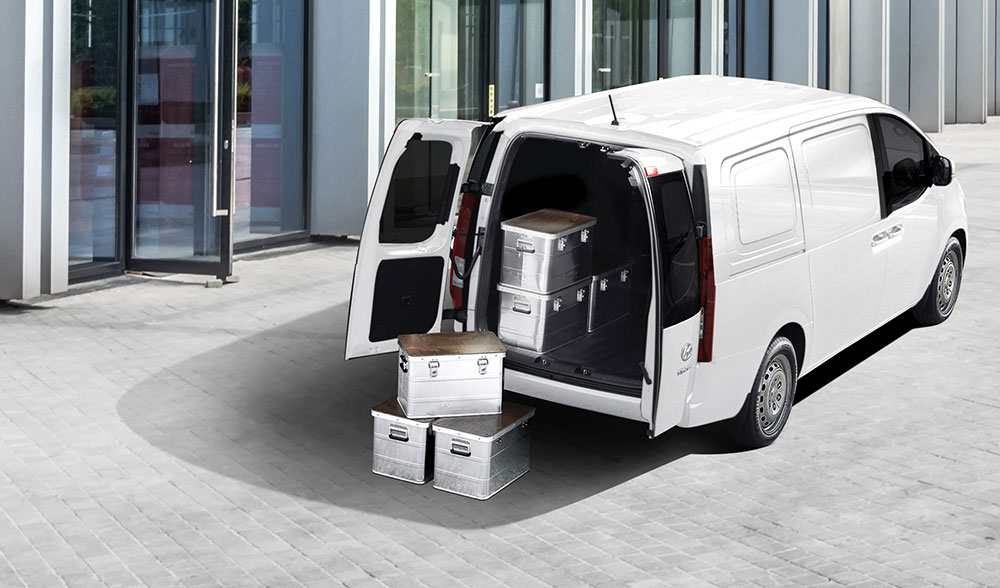Van safety camparison tool available for buyers
ANCAP releases updated commercial van safety report.

The growth in online shopping and home deliveries has driven an increase in the number of commercial van operators on our roads, prompting the Australasian New Car Assessment Program (ANCAP) to release a new safety comparison tool.
The aim is to help owners and businesses make better decisions when buying a van.
Australasia’s independent voice on vehicle safety, ANCAP Safety, has released its second round of comparative results evaluating the availability and performance of active safety systems across a range of goods-carrying commercial vans.
The release follows the inaugural van comparison results published in December 2020 and includes updated Mercedes-Benz Vito and Iveco Daily assessments, acknowledging specification upgrades introduced to the market since the initial comparison was released.
The report also includes analysis of the LDV Deliver 9 and newly released Hyundai Staria-Load, providing an up-to-date summary of collision avoidance specification and capability for 16 commercial vans.
“This analysis provides added value to fleet and commercial van operators as it extends beyond ANCAP’s traditional star rating program to shine a light on the active safety performance of an important segment,” ANCAP Chief Executive Officer Carla Hoorweg said.
“Vans are a workplace. Their increased on-road exposure and frequent use in built-up urban areas means they interact with a large number of other vehicles, pedestrians and cyclists.
“It is essential that fleet and van operators are aware of the crash avoidance capabilities and active safety features fitted to their vehicles.”
Find out if you are delivering on safety
ANCAP Safety assessed the performance of Advanced Driver Assistance Systems (ADAS) available across a range of commercial vans and has provided the results in an updated quick-glance comparison report that’s now available for commercial van operators.
Hyundai’s new Staria-Load (pictured) earned the first Platinum level of crash avoidance with a score of 90%, setting a new benchmark for availability and performance of ADAS across the van market.
At the other end of the scale, the modest active safety technology fitted to the LDV Deliver 9 delivered a Bronze score of 27%.
Building on the results of the 2020 analysis, the updated Mercedes-Benz Vito (from January 2021) joins the Toyota HiAce and Ford Transit in achieving Gold-level crash avoidance performance.
The improved specification elevated the Vito’s score from 23% (Bronze) to 61% (Gold) through the standard inclusion of car, pedestrian and cyclist detecting autonomous emergency braking, lane departure warning and blind-spot monitoring systems.
The Iveco Daily (from February 2021) has also since gained autonomous emergency braking (car-to-car), a driver monitoring system and seat belt reminders for the driver and passenger as standard, increasing its score from 6% (Not Recommended) to 24% (Bronze).
Five vans retained their Silver ranking, four achieved Bronze and three – the Mitsubishi Express, Renault Trafic, and Renault Mater – remain as Not Recommended due to their lack of active safety systems.
“The information provided in this latest comparison report highlights the differences in safety specification and the varying levels of active safety performance across van models,” Ms Hoorweg said.
“It is encouraging to see the full suite of active safety features now standard in a number of vans and we encourage brands to continue updating the safety specification of their vans as they would with passenger vehicles.”
Know you're covered with RACQ Car Insurance
Related topics
Things to note
The information in this article has been prepared for general information purposes only and is not intended as legal advice or specific advice to any particular person. Any advice contained in the document is general advice, not intended as legal advice or professional advice and does not take into account any person’s particular circumstances. Before acting on anything based on this advice you should consider its appropriateness to you, having regard to your objectives and needs.



